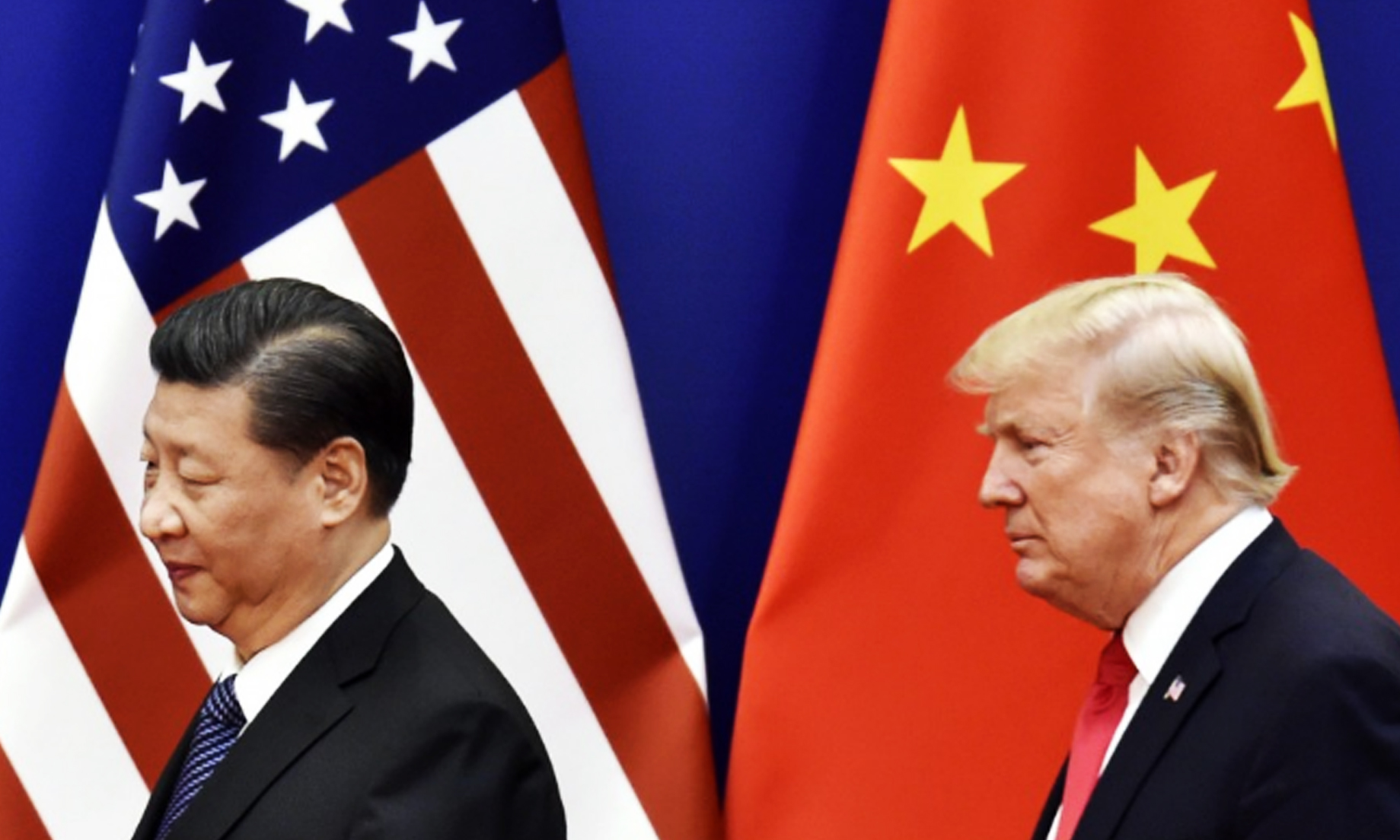KUALA LUMPUR, July 28 (NNN-Bernama) — “When two elephants fight, the grass gets stomped” is the least repercussion that the world wants to see from the ongoing US-China trade war, which started on March 22, 2018.
Since then, the cloud has been gloomy for the global economy and it has taken a toll not only on capital markets but also companies, whereby income is affected, forecast reviewed, output cut while jobs are on the line.
On Wall Street, the Dow Jones Industrial Average Index dipped 2.9 per cent on the day the trade war kicked off, the S&P 500 slid 2.5 per cent and the Nasdaq Composite Index fell by 2.4 per cent, while Germany’s DAX 30 tumbled 1.7 per cent, France’s CAC 40 index slipped 1.4 per cent and the UK’s FTSE 100 index dropped 1.2 per cent.
Emerging markets like Malaysia was not spared either.
Bursa Malaysia closed at 1,865.22, down 11.65 points on the following day, in line with a drastic drop in global shares.
Industry players have been hoping for a beacon of hope, a light at the end of the tunnel for the trade dispute to settle, or at least come to a consensus.
Fortunately for Malaysia, the electrical and electronics (E&E) sector remained as one of the strongest pillars of the country’s economic growth, which saw exports of E&E products edge up 0.5 per cent year-on-year to RM29.34 billion in May 2019, constituting the largest share of 34.9 per cent of total exports worth RM84.15 billion.
Menteri Besar Selangor (Incorporated) chief executive officer Raja Shahreen Raja Othman was cautiously optimistic that the E&E businesses under the state government’s wings would continue to perform, despite the choppy outlook.
“Some might say that we have indeed benefited from the trade tension, which can be true for now, but it is also undeniable that the global risks were too huge to be discounted,” he told Bernama recently.
He added that while the US and China argued about who is gaining or losing, industries worldwide were having uncertainty hovering over their heads as to what would happen next, better or worse.
“We have businesses in China where our companies invest there. And now, due to the trade war, some of them wanted to relocate back to Malaysia.
“We are figuring out what is the best way for it,” he said.
As for the prolonged effect on business, Raja Shahreen said companies were unsure about how long the trade spat was expected to continue, yet they were trying their level best to sustain and keep moving.
Meanwhile, InvestPenang director Datuk Seri Lee Kah Choon said as the trade war continues, the state’s E&E companies are urged to explore the opportunities that arise from the trade dispute.
He said that Penang would continue to attract foreign direct investments despite competition from neighbouring countries like Thailand, Cambodia and Vietnam.
“Malaysia has the global supply chain connection, infrastructure and human resources that suit the multinational companies (MNCs),” he said.
Recently, Kenanga Research analyst Adrian Kok said in a note that electronics manufacturing services (EMS) players were more likely to be the beneficiaries from the trade diversion, with P.I.E. Industrial Bhd (PIE) seeing enquiries crystallising into new orders.
PIE said in its annual report for the financial year ended Dec 31, 2018 (FY18) that the group had grown steadily to be an excellent global EMS player where it exported directly to, or indirectly, through MNCs to the US, Europe, Asia and Asia Pacific.
“The group benefits from the trade war between US and China as it has received a lot of enquiries especially from the China market,” the company said, adding it would strive to expand its customer base to China in the coming years with these opportunities arising from the trade war.
However, investors’ confidence has not been reflected in the capital market, with PIE’s share price falling to RM1.27 last Friday from RM1.47 on Jan 2, 2019.
Meanwhile, in a recent note, Hong Leong Investment Bank Bhd analyst Tan J Young had chosen Frontken Corporation Bhd as its top stock pick among the semiconductor players.
In its annual report for the financial year ended Dec 31, 2018 (FY18), the company said its semiconductor business in Taiwan, Singapore and Malaysia saw strong improvements in their respective businesses, with a revenue growth of 14.5 per cent, 26.0 per cent and 16.9 per cent (based on the local currencies), respectively, compared with FY17.
It is noted that the company’s year-to-date share price had more than doubled to RM1.63 as at July 26, 2019 from 70 sen on Jan 2, 2019.
As for other E&E related companies such as Pentamaster Corporation Bhd, the company has seen its year-to-date share price surge nearly 100 per cent to RM3.55 last Friday from RM1.78 on Jan 2, 2019, while Vitrox Corporation Bhd’s share price rose 14.7 per cent to RM7.03 from RM6.13 on Jan 2, 2019.
NNN– BERNAMA






